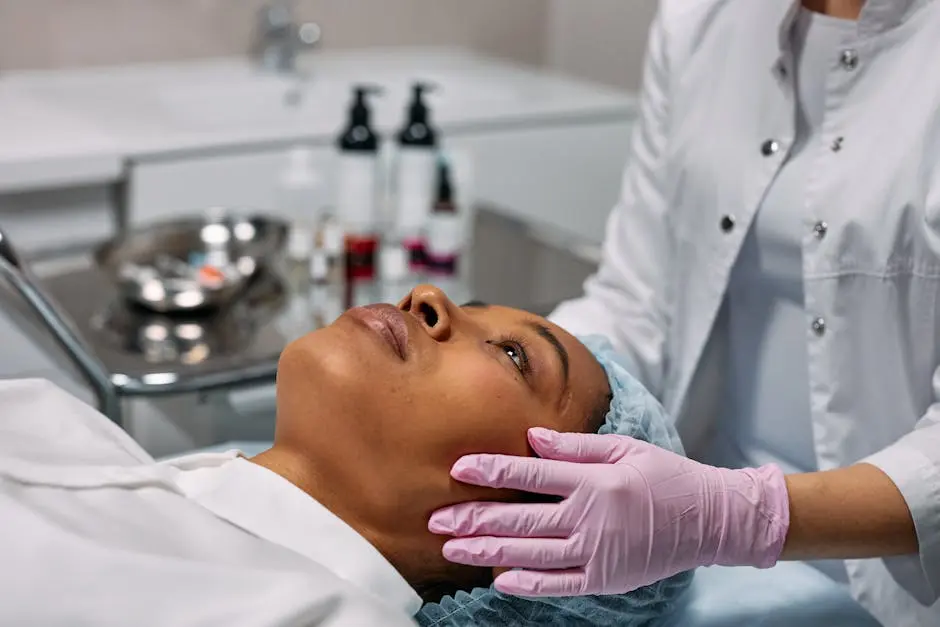Chemical peels have gained popularity in recent years as an effective skincare treatment for a range of concerns. This article aims to demystify chemical peels, examining their effectiveness, types, and what one can expect from the procedure, all from a local Pittsburgh perspective. With a friendly and conversational tone, we will explore this topic to help you make informed decisions about your skincare routine.
What Are Chemical Peels?
Chemical peels are cosmetic treatments that involve the application of a solution to the skin, resulting in exfoliation and the eventual peeling away of the outer layers. This process aims to improve the skin’s appearance and texture by encouraging new cell growth. You might be wondering how this works exactly. Essentially, various acids are used in different concentrations to target specific skin issues, such as acne, fine lines, and sun damage.
In Pittsburgh, many clinics offer a variety of chemical peel options, each tailored to meet the unique needs of their clients. It’s important to note that a consultation with a qualified dermatologist can help determine which type of peel may be best suited for your skin type and concerns. As we delve deeper into the world of chemical peels, we see that their versatility truly sets them apart from other skincare treatments.
The Different Types of Chemical Peels
Understanding the different types of chemical peels is essential for anyone considering this treatment. There are three main categories: superficial, medium, and deep peels. Superficial peels, typically made with alpha-hydroxy acids (AHAs), can gently improve skin texture while requiring minimal downtime—perfect for those busy Pittsburgh lifestyles.
On the other hand, medium peels usually employ trichloroacetic acid (TCA) to remove the outer and some of the middle layers of skin. These peels offer more intense results but may necessitate a longer recovery period. For individuals seeking significant skin rejuvenation, deep peels might be the ideal choice. Although these procedures yield remarkable results, they do come with a more extended recovery time and require careful aftercare.
Ultimately, the choice of chemical peel depends on various factors, including skin type, the desired outcome, and recovery time tolerance. Consulting with a local expert can provide invaluable guidance, especially in a vibrant city like Pittsburgh, where there are numerous options to explore.
Benefits of Chemical Peels for Your Skin
Chemical peels boast an impressive range of benefits, making them a popular choice for many skincare enthusiasts. One of the primary advantages is their ability to improve skin texture and tone. This can be particularly beneficial for individuals dealing with acne scars or uneven pigmentation. By sloughing away dead skin cells, chemical peels reveal a fresher, more radiant complexion underneath.
Additionally, chemical peels can stimulate collagen production, a vital component for maintaining skin’s elasticity and firmness. This means that not only can you enjoy immediate results, but over time, consistent treatments can lead to a more youthful appearance. For those in Pittsburgh seeking to address fine lines or wrinkles, a chemical peel may serve as a valuable addition to your skincare regimen.
Another significant benefit lies in their versatility. No matter your skin concern—whether it’s sun damage, discoloration, or even the onset of aging—there is likely a chemical peel designed to address your needs. Reputable clinics in Pittsburgh often tailor treatments to individual requirements, ensuring that everyone can experience the transformative effects of this skincare solution.
What to Expect During a Chemical Peel Session
Before deciding to undergo a chemical peel, it’s important to understand what to expect during the session. Typically, the appointment begins with a thorough consultation where your skincare professional will assess your skin and discuss your goals. This is a crucial step to ensure you achieve the best possible results, as your needs may differ from those of others.
Once you’re ready, the actual peeling process involves a careful application of the chosen chemical solution to the skin. You may feel a slight tingling or burning sensation, which is completely normal. This is your skin reacting to the treatment and indicates that it’s working! As the solution penetrates the skin, you’ll notice a few minutes of discomfort, but it’s over quickly.
After the application, your skin will be monitored closely for any adverse reactions. It’s common to see some redness and peeling afterward, but this should subside within a few days. Healing times may vary, but with proper aftercare, most people are able to resume their daily activities within a week or so. Remember, while the journey may vary, every step will ultimately lead you toward healthier, rejuvenated skin.
Aftercare Tips to Maximize Your Results
Proper aftercare is just as essential as the peel itself. Following your treatment, your skin will be more sensitive than usual, which means it needs extra love and care. A common recommendation from Pittsburgh dermatologists is to avoid sun exposure for at least a week. Wearing sunscreen becomes a non-negotiable part of your routine to protect your healing skin.
Additionally, hydrate your skin regularly with gentle moisturizers designed for sensitive skin. This will help facilitate the healing process and aid in recovery. Avoid harsh exfoliants and products containing retinol initially, as these may irritate your skin further. Instead, focus on soothing and nourishing ingredients to promote healing.
Listening to your dermatologist’s aftercare advice plays a crucial role in your treatment’s overall effectiveness. Following these recommendations will not only yield the best results, but they’ll also help ensure your skin feels comfortable and cared for as it heals. Trust the process, and soon those beautiful results will emerge!
Finding the Right Clinic in Pittsburgh
Choosing the right clinic in Pittsburgh for your chemical peel is a decision that can greatly impact your experience and results. Research is key! Start by looking for clinics with certified dermatologists who specialize in chemical peels. Many have excellent online reviews that provide insight into the quality of care they offer.
Scheduling consultations is a wise move, as it allows you to meet the medical professionals, ask questions, and gauge their expertise. A reputable clinic will take the time to evaluate your skin, explain different peel options, and discuss potential outcomes. This should never feel rushed—your skincare journey deserves that personal touch.
Moreover, consider clinics that prioritize ongoing education and advancements in dermatological techniques. Pittsburgh is home to many skilled professionals who are devoted to providing the latest treatments. By ensuring you choose a knowledgeable expert, you can embark on your chemical peel experience with confidence and excitement.
Common Misconceptions About Chemical Peels
Despite their popularity, many misconceptions surround chemical peels that can deter potential clients from considering them. A common belief is that chemical peels are overly painful, but this is simply not the case. While some discomfort can occur during the treatment, most patients describe it as manageable, particularly with modern techniques and numbing options.
Another misconception is that chemical peels are only for severe skin issues, which couldn’t be further from the truth. In reality, they are versatile treatments designed to address various skin concerns, from mild discoloration to fine lines. Many individuals opt for lighter peels simply to maintain their skin’s radiance and youthfulness.
Lastly, some believe that chemical peels lead to long recovery times or unflattering results, but this isn’t an inevitable outcome. By carefully selecting the right peel and following aftercare instructions, patients often find their experiences lead to stunning transformations. Educating yourself about these treatments will help you overcome these misconceptions and consider a chemical peel as a worthy addition to your skincare routine.
Wrapping Up: Your Journey With Chemical Peels
In conclusion, chemical peels offer a variety of benefits for those looking to enhance their skin’s appearance. With a range of options available, understanding what works best for your skin type and needs is crucial. Consulting with experienced dermatologists in Pittsburgh can guide you in choosing the right peel that fits your goals. Remember, aftercare is just as important as the procedure itself, so always follow the advice of your skincare professional for the best results.











